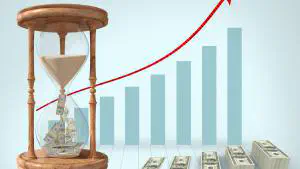Overview
The Gross Domestic Product, or GDP, is a critical economic indicator that helps us understand the size, health, and growth of an economy. It’s essentially the broadest measure of economic activity within a country, representing the total dollar value of all goods and services produced over a specified period. GDP is usually measured on an annual basis, but it can also be calculated quarterly.
In its calculation, GDP includes all the private and public consumption, government spending, investments, and net exports that occur within a defined territory. It considers all private and public consumption, government outlays, investments, additions to private inventories, paid-in construction costs, and the foreign balance of trade.
There are three main methods to calculate GDP. The first is the income approach, which sums up all the income earned by individuals and businesses in the production of goods and services. The second method is the expenditure approach, which adds up all the spending on goods and services produced within the country. The third is the production (or output or value-added) approach, which calculates the total value of output produced by industries in the economy.
GDP can be reported in nominal or real terms. Nominal GDP is calculated at current market prices, so it includes the impacts of inflation. On the other hand, Real GDP is GDP corrected for inflation. It’s calculated using prices from a base year to remove the effect of rising price levels, making it a better measure for comparisons over time.
GDP is widely used because it’s a comprehensive measure, encompassing everything produced by all the individuals and companies within a country. It doesn’t matter if they are citizens or foreign-owned companies, if they are located within the country’s boundaries, their production is included in GDP. However, while GDP does measure economic activity, it’s not a perfect measure of economic well-being. For instance, it doesn’t account for income inequality, environmental impact, unpaid work, or the quality of goods and services produced.
Nevertheless, GDP remains an essential tool for economists, policymakers, and analysts. They use it to compare the economic performance of different countries, or to monitor and analyze the economic growth of a single country over time. Changes in a nation’s GDP also affect everything from the stock market to the presidential election and can be a determinant of a country’s overall standard of living.






